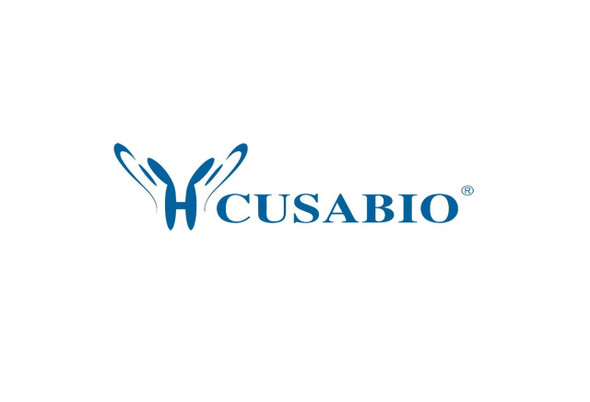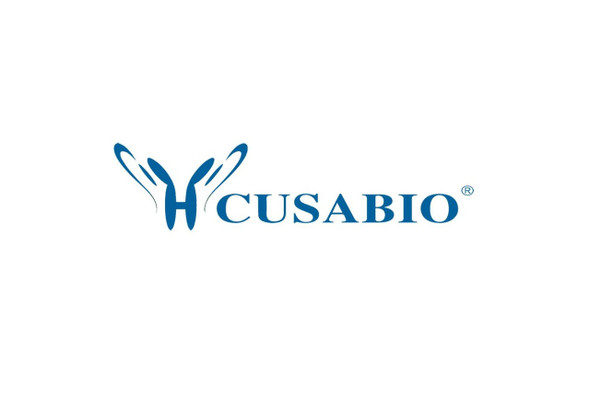Cusabio Human Recombinants
Recombinant Human Cyclic AMP-dependent transcription factor ATF-7 (ATF7) | CSB-EP002279HU
- SKU:
- CSB-EP002279HU
- Availability:
- 13 - 23 Working Days
Description
Recombinant Human Cyclic AMP-dependent transcription factor ATF-7 (ATF7) | CSB-EP002279HU | Cusabio
Alternative Name(s): Activating transcription factor 7 Transcription factor ATF-A
Gene Names: ATF7
Research Areas: Epigenetics and Nuclear Signaling
Organism: Homo sapiens (Human)
AA Sequence: MGDDRPFVCNATGCGQRFTNEDHLAVHKHKHEMTLKFGPARTDSVIIADQTPTPTRFLKNCEEVGLFNELASSFEHEFKKAADEDEKKARSRTVAKKLVVFRPRLFLLCFGIIFLIG
Source: E.coli
Tag Info: N-terminal GST-tagged
Expression Region: 1-117aa
Sequence Info: Full Length of BC042363
MW: 40.3 kDa
Purity: Greater than 90% as determined by SDS-PAGE.
Relevance: Plays important functions in early cell signaling. Binds the cAMP response element (CRE) (consensus: 5'-GTGACGT[AG][AG]-3'), a sequence present in many viral and cellular promoters. Activator of the NF-ELAM1/delta-A site of the E-selectin promoter. Has no intrinsic transcriptional activity, but activates transcription on formation of JUN or FOS heterodimers. Also can bind TRE promoter sequences when heterodimerized with members of the JUN family. Isoform 4 acts as a dominant repressor of the E-selectin/NF-ELAM1/delta-A promoter. Isoform 5 acts as a negative regulator, inhibiting both ATF2 and ATF7 transcriptional activities. It may exert these effects by sequestrating in the cytoplasm the Thr-53 phosphorylating kinase, preventing activation.
Reference: "ATF-a0, a novel variant of the ATF/CREB transcription factor family, forms a dominant transcription inhibitor in ATF-a heterodimers." Pescini R., Kaszubska W., Whelan J., DeLamarter J.F., Hooft van Huijsduijnen R. J. Biol. Chem. 269:1159-1165(1994)
Storage: The shelf life is related to many factors, storage state, buffer ingredients, storage temperature and the stability of the protein itself. Generally, the shelf life of liquid form is 6 months at -20?/-80?. The shelf life of lyophilized form is 12 months at -20?/-80?.
Notes: Repeated freezing and thawing is not recommended. Store working aliquots at 4? for up to one week.
Function: Plays important functions in early cell signaling. Binds the cAMP response element (CRE) (consensus
Involvement in disease:
Subcellular Location: Nucleus, Nucleus, nucleoplasm
Protein Families: BZIP family
Tissue Specificity: Expressed in heart, lung and skeletal muscle. Isoform 4 is expressed in various tissues including heart, brain, placenta, lung and skeletal muscle. Highest levels in skeletal muscle. Lowest in lung and placenta.
Paythway:
Form: Liquid or Lyophilized powder
Buffer: If the delivery form is liquid, the default storage buffer is Tris/PBS-based buffer, 5%-50% glycerol. If the delivery form is lyophilized powder, the buffer before lyophilization is Tris/PBS-based buffer, 6% Trehalose, pH 8.0.
Reconstitution: We recommend that this vial be briefly centrifuged prior to opening to bring the contents to the bottom. Please reconstitute protein in deionized sterile water to a concentration of 0.1-1.0 mg/mL.We recommend to add 5-50% of glycerol (final concentration) and aliquot for long-term storage at -20?/-80?. Our default final concentration of glycerol is 50%. Customers could use it as reference.
Uniprot ID: P17544
HGNC Database Link: HGNC
UniGene Database Link: UniGene
KEGG Database Link: KEGG
STRING Database Link: STRING
OMIM Database Link: OMIM









